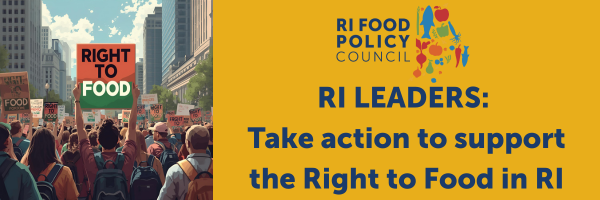Statewide Coalition Calls on RI To Protect The Right To Food
In the face of major potential cuts to the federal Supplemental Nutrition Assistance Program (SNAP) state leaders must act to protect Rhode Islanders
PROVIDENCE, RI, OCTOBER 14, 2025 – With the passage of Public Law 119-21 (referred to as the Big Beautiful Bill) on July 4th, 2025 came changes to the Supplemental Nutrition Assistance Program (SNAP, formerly known as Food Stamps) that are projected to strip benefits from millions nationwide. In response, a broad coalition of RI organizations, businesses, and other stakeholders led by the RI Food Policy Council has signed a letter calling on state leaders to act swiftly to provide the necessary resources to protect the more than 144,000 Rhode Islanders who are at risk of losing their SNAP benefits.
- Immediately allocate resources to the Dep’t. of Labor and the Department of Human Services to ensure residents get the help they need with increasingly difficult SNAP paperwork demands.
- Reconvene the General Assembly in a Special Fall Legislative Session to proactively address the impact of federal cuts and act swiftly to protect Rhode Islanders before the harm deepens.
- Prioritize increasing state revenues for basic needs that will otherwise be lost as a result of the federal cuts. For example, by establishing a tax on top earners and using the resulting annual revenues to pay for emergency and supplemental food for Rhode Islanders in need.
- Affirm the Right to Food for all Rhode Islanders. Ensure and guarantee that all state residents have regular, permanent, and unrestricted access to adequate food, and work to create the conditions that allow individuals to feed themselves adequately, safely, and in culturally acceptable ways.

Signatories
- RI Food Policy Council
- Alimente
- Aquidneck Community Table
- Beautiful Day
- CartwheelRI
- Casa de Oracion Getsemani
- Center for Mediation and Collaboration RI / Land & Sea Together RI
- Central Providence Unidos
- Community Care Alliance
- Commercial Fisheries Center of RI
- Community Health Innovations of Rhode Island
- Community Servings
- Eat Drink RI
- Eating with the Ecosystem
- Economic Progress Institute
- Farm Aid
- Farm Fresh Rhode Island
- Farm Sanctuary
- FoodRecovery.org
- Garden Time, Inc
- Groundwork Rhode Island
- Higher Ground International
- Hope & Main
- Jamestown Housing Authority
- Leap_year
- Legal Key Partnership for Health and Justice
- National Farm to School Network
- NeighborWorks Blackstone River Valley
- New Beginnings Inc
- Northeast Organic Farming Association of Rhode Isl
- PACE Organization of Rhode Island
- Pawtucket Soup Kitchen
- Rescuing Leftover Cuisine
- Rhode Island Academy of Nutrition and Dietetics
- Rhode Island Community Food Bank
- Rhode Island food dealers association
- Rhode Island School Recycling Project
- RI Food Policy Council
- RI School Recycling Project
- Ripulse
- Rooted Data Design
- Skydog Farm
- Southeastern Massachusetts Agricultural Partnership (SEMAP)
- Southside Community Land Trust
- St. Peter’s & St. Andrew’s Episcopal Church
- SteveAhlquist.com
- Sycamore Farm
- The Boys & Girls Clubs of Newport County
- The Help Center NC
- The Womxn Project
- Tri- County Community Action Agency
- Violet’s Village
- Water Way Farm
- West End Community Center
- Zero Waste Providence
The following members of institutions of higher education have also signed:
- Dr. Patrick Baur (Assistant Professor, University of Rhode Island)
- Dr. Katherine Darling (Assistant Professor (Research); Research Scientist)
- Dr. Kim Gans (Adjunct Professor, Brown University)
- Dr. Rose Jennings (University of Rhode Island)
- Dr. Dawn King (Faculty Member – Institute at Brown for Environment and Society)
- Dr. Robyn Linde (Professor, Rhode Island College)
- Dr. Alison Tovar (Associate Professor, Brown University)
If your organization or business wants to sign on, it is not too late. You can fill out this form. RIFPC will keep an updated list of signatories on our website at www.rifoodcouncil.org
About the Right to Food Movement
The right to food is the right to have regular, permanent and unrestricted access—either directly or by means of financial purchases— to quantitatively and qualitatively adequate and sufficient food corresponding to the cultural traditions of the people to which the consumer belongs, and which ensure a physical and mental, individual and collective, fulfilling and dignified life free of fear.
This definition is in line with the core elements of the right to food as defined by General Comment No. 12 of the United Nations Committee on Economic, Social and Cultural Rights (the body in charge of monitoring the implementation of the International Covenant on Economic, Social and Cultural Rights in those states which are party to it). The Committee declared that “the right to adequate food is realized when every man, woman and child, alone or in community with others, has physical and economic access at all times to adequate food or means for its procurement.
Food is not a privilege; it is a universal human right. Globally, 171 countries have recognized and acted to protect the right to food , which means that they have an obligation to take concrete steps to prevent hunger and achieve food security and nutrition.
More information about the US Right to Food movement can be found at https://www.righttofoodus.org/
ABOUT RIFPC
The Rhode Island Food Policy Council (RIFPC) is an independent statewide network established in 2011 with a mission to promote a more equitable, accessible, economically vibrant, and environmentally sustainable food system. RIFPC is the only food policy council in Rhode Island. We convene, educate, and foster community-based advocacy that drives good food policy forward in order to achieve a just and resilient food system for all Rhode Islanders. We coordinate a statewide network of stakeholders representing all stages of the food chain – production, harvesting, processing, distribution, consumption, and waste management who catalyze high-impact partnerships, projects, and programs that address systemic and structural inequities. Our work centers equity and supports civic engagement, a critical component of a healthy democracy.
We operate with a small, collaborative professional staff, a broad network of engaged and diverse council members, and hundreds of stakeholders from across the Ocean State. More information about RIFPC can be found at www.rifoodcouncil.org.

